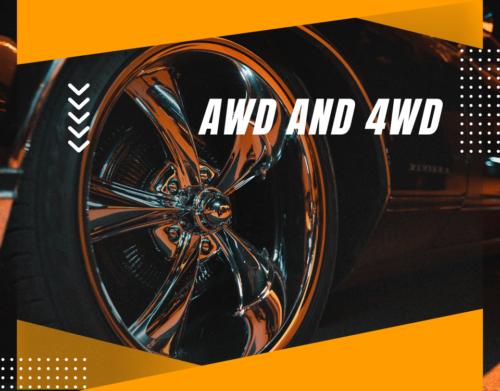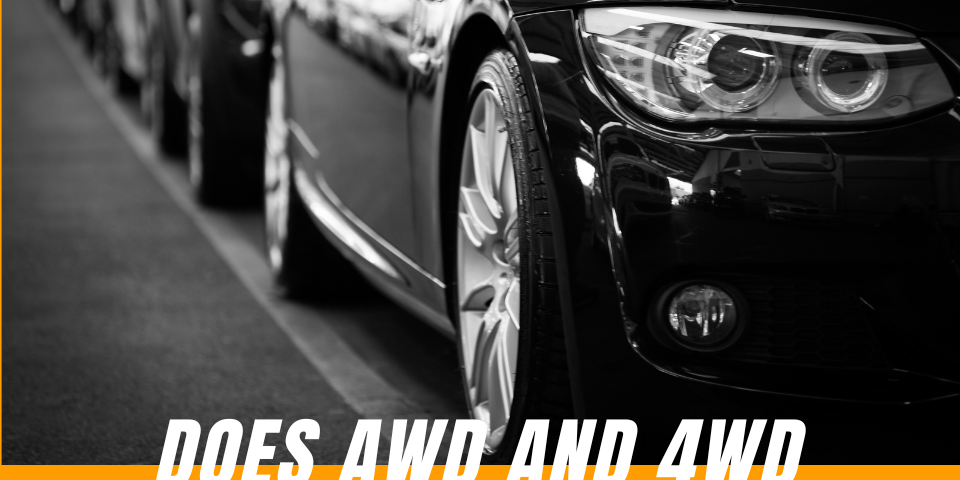Does AWD and 4WD affect auto insurance

Is Amax insurance legit in USA
February 28, 2024
Do I need insurance to rent a car in Hawaii
March 6, 2024Table of Contents
ToggleDoes AWD and 4WD affect auto insurance?
Does AWD and 4WD affect auto insurance: Yes, AWD and 4WD affect auto insurance. AWD vehicles are more expensive to insure due to their intricate components and higher repair costs. Meanwhile, 4WD, often found in trucks and SUVs, can raise insurance premiums, especially for off-road adventures.
When choosing between all-wheel drive (AWD) and four-wheel drive (4WD), it’s essential to consider their impact on insurance costs.
Remember that safety, location, and vehicle type play crucial roles in determining your insurance rates.
Understanding AWD and 4WD
1. All-Wheel Drive (AWD):
AWD, or all-wheel drive, combines elements of both two-wheel and four-wheel drive systems. It automatically switches between the two based on road conditions.
- AWD systems distribute power to all four wheels continuously, adjusting traction as needed.
- AWD is commonly found in sedans, SUVs, and crossovers.
- It enhances stability and control, especially in adverse weather conditions.
- AWD vehicles are designed for everyday driving and occasional light off-road use.
There are two types:
Permanent AWD: suitable for slippery surfaces.
Automatic AWD: which adjusts power as needed.
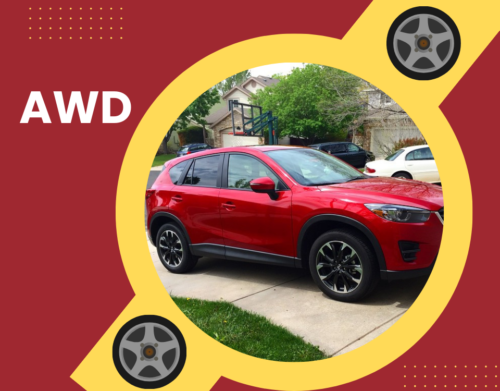
2. Four-Wheel Drive (4WD):
4WD, or Four Wheel Drive, sends power to all four wheels continuously. It offers selectable modes for different driving conditions: 4×2 (two-wheel drive) or 4×4 (four-wheel drive). Continuous 4×4 mode provides constant power to all wheels, ideal for challenging terrain.
- 4WD systems allow the driver to manually engage all four wheels.
- Typically found in trucks, SUVs, and off-road vehicles.
- 4WD provides better traction off-road, making it ideal for rugged terrain.
- It’s often used for serious off-roading or towing heavy loads.
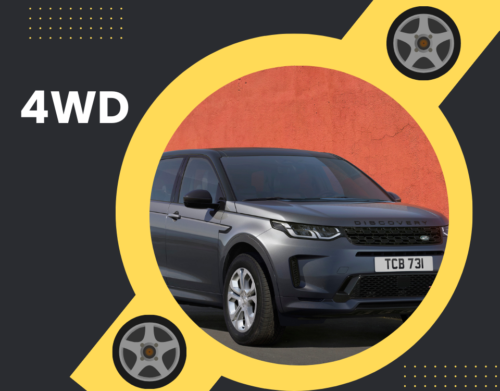
How AWD and 4WD Impact Insurance
When it comes to purchasing auto insurance, there are numerous factors that insurance companies take into consideration to determine your rates. One such factor that often comes up for discussion is whether having an all-wheel drive (AWD) or four-wheel drive (4WD) vehicle affects your insurance premiums.
1. Insurance Costs:
AWD:
- AWD vehicles tend to be more expensive to insure than their front-wheel drive (FWD).
- AWD systems involve complex components (such as differentials and transfer cases), which can be costly to repair or replace.
- Insurance companies consider repair costs when setting premiums.
- AWD cars are often associated with higher-end models, which also affects rates.
4WD:
- 4WD vehicles may have even higher insurance costs due to their rugged nature and off-road capabilities.
- Off-road adventures can lead to more wear and tear, increasing the likelihood of claims.
- Repairing specialized 4WD components can be expensive.
2. Safety Considerations:
AWD:
AWD enhances stability and traction, especially on wet or slippery roads. This can reduce the risk of accidents.
4WD:
While 4WD provides excellent traction off-road, it’s not always engaged during regular driving. Some 4WD vehicles spend most of their time in 2WD mode, which doesn’t impact insurance rates significantly.
3. Driving Habits:
While AWD and 4WD can enhance traction and stability, they do not guarantee immunity from accidents. Some drivers may feel overconfident in their vehicle’s capabilities and engage in riskier driving behavior, which could increase the likelihood of accidents and consequently lead to higher insurance premiums.
4. Repair and Replacement Costs:
AWD and 4WD systems are generally more complex than traditional two-wheel drive systems, which can result in higher repair and replacement costs in the event of damage or mechanical issues. Insurance companies may take these factors into account when determining premiums for AWD and 4WD vehicles.
5. Vehicle Type Matters:
AWD:
AWD is commonly found in family cars, SUVs, and luxury vehicles. These cars often have higher replacement costs, affecting insurance premiums.
4WD:
Trucks and SUVs equipped with 4WD are popular choices for outdoor enthusiasts. Their usage patterns (off-road adventures, towing, etc.) influence insurance rates.
6. Location and Climate:
AWD:
If you live in an area with frequent rain, snow, or ice, AWD can be a valuable safety feature. Insurance companies consider local weather conditions when assessing risk.
4WD:
In regions with rugged terrain or extreme weather, 4WD might be essential. However, off-road use can increase the likelihood of accidents.
Tips for Insurance Savings:
1. Shop Around: Compare insurance quotes from different providers to find the best rates for your AWD or 4WD vehicle.
2. Safety Features: Highlight safety features (like AWD) during insurance negotiations.
3. Driving Record: Maintain a clean driving record to qualify for better rates.
4. Deductibles: Adjust your deductibles to balance premium costs.
Remember that insurance rates vary based on individual circumstances, so consult with an insurance agent to tailor coverage to your needs. Whether you choose AWD or 4WD, prioritize safety and responsible driving.
Conclusion:
In conclusion, when deciding between all-wheel drive (AWD) and four-wheel drive (4WD), it’s essential to consider their impact on auto insurance. AWD vehicles, with their continuous power distribution to all four wheels, tend to be more expensive to insure due to intricate components and higher repair costs. On the other hand, 4WD, commonly found in trucks and SUVs, can also raise insurance premiums, especially if used for off-road adventures. Remember that safety, location, and vehicle type play crucial roles in determining your insurance rates. Choose wisely, prioritize safety, and drive responsibly.
AWD vs. FWD Insurance Costs:
- AWD (All-Wheel Drive) vehicles have systems that power all four wheels, improving control on slippery roads.
- Despite this advantage, having AWD doesn’t guarantee cheaper insurance.
- AWD cars are typically pricier to insure compared to FWD (Front-Wheel Drive) vehicles.
- This higher insurance cost is because AWD systems are more complex and expensive to repair or replace in case of accidents.
Factors Affecting AWD Insurance Rates:
- Insurance rates for AWD vehicles are influenced by their advanced drivetrain technology.
- While AWD improves traction on hazardous surfaces, it also raises repair expenses.
- Insurers take into account these factors when setting premiums.
AWD Cars and Insurance Premiums:
- AWD cars constantly distribute power to all wheels, with some models offering additional rear-wheel power when necessary.
- Many modern sedans and minivans provide AWD options for better safety in adverse weather conditions.
- The inclusion of AWD typically increases insurance premiums due to the added complexity and risk associated with these systems.
AWD vs. 4WD Insurance:
- AWD and 4WD (Four-Wheel Drive) vehicles serve different purposes, with 4WD primarily designed for off-road use.
- Both AWD and 4WD systems generally lead to higher insurance costs compared to FWD.
- Driving a 4WD vehicle off-road frequently can increase the likelihood of accidents, further impacting insurance rates.
In conclusion, while AWD and 4WD systems offer enhanced traction and capabilities, they also contribute to higher insurance premiums. Insurers factor in the increased complexity and potential risks associated with these drivetrain systems when determining insurance costs.
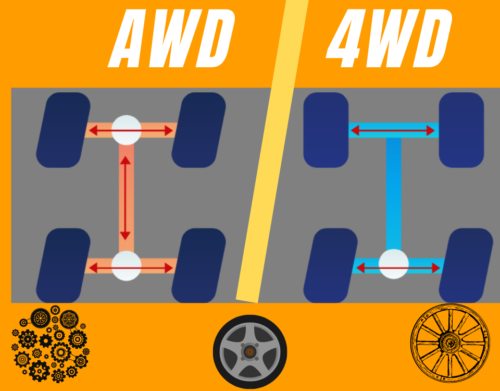
FAQ
Does AWD make insurance go up?
No, having an all-wheel drive (AWD) typically does not directly impact your insurance rates. However, other factors like the make and model of your car, your driving history, and your location can affect insurance costs.
Can a car have both AWD and 4WD?
Yes, some vehicles are equipped with both all-wheel drive (AWD) and four-wheel drive (4WD) systems. These dual systems provide flexibility for different driving conditions.
Does AWD count as 4WD?
No, AWD and 4WD are distinct systems. AWD provides power to all wheels continuously, while 4WD is typically engaged manually and distributes power equally to all four wheels.
Is AWD or 4WD more expensive?
4WD tends to be more expensive due to its rugged components and off-road capabilities. AWD is generally more affordable and suitable for everyday driving.
Should I get 4WD or AWD?
Consider your driving needs:
4WD: Ideal for off-road adventures, snow, and rough terrain.
AWD: Great for improved traction on wet or slippery roads without the need for manual engagement.
Is a 4×4 more expensive to insure?
Not necessarily. Insurance costs depend on various factors, including the vehicle type, your driving record, and location. While 4x4s may have higher repair costs, it doesn’t always translate to higher insurance premiums.
Does AWD make insurance cheaper?
No, having all-wheel drive (AWD) doesn’t make insurance cheaper. AWD is an upgraded driveline that powers all four wheels of your vehicle. While it allows better control on hazardous surfaces like wet or snowy roads, AWD cars are generally more expensive to insure than front-wheel drive (FWD) vehicles. In case of a total loss, repairing or replacing an AWD car is costlier than a FWD car.
What does AWD mean?
AWD stands for all-wheel drive. It’s a system that distributes power to all four wheels simultaneously. AWD vehicles are more sophisticated than FWD ones, which contributes to their higher insurance costs.
Is all-wheel drive more expensive to insure than four-wheel drive?
Yes, AWD and four-wheel drive (4WD) vehicles are generally more expensive to insure than FWD cars. However, 4WD vehicles may be even pricier to insure in the long run, especially if you use them off-road frequently and are more prone to accidents.
